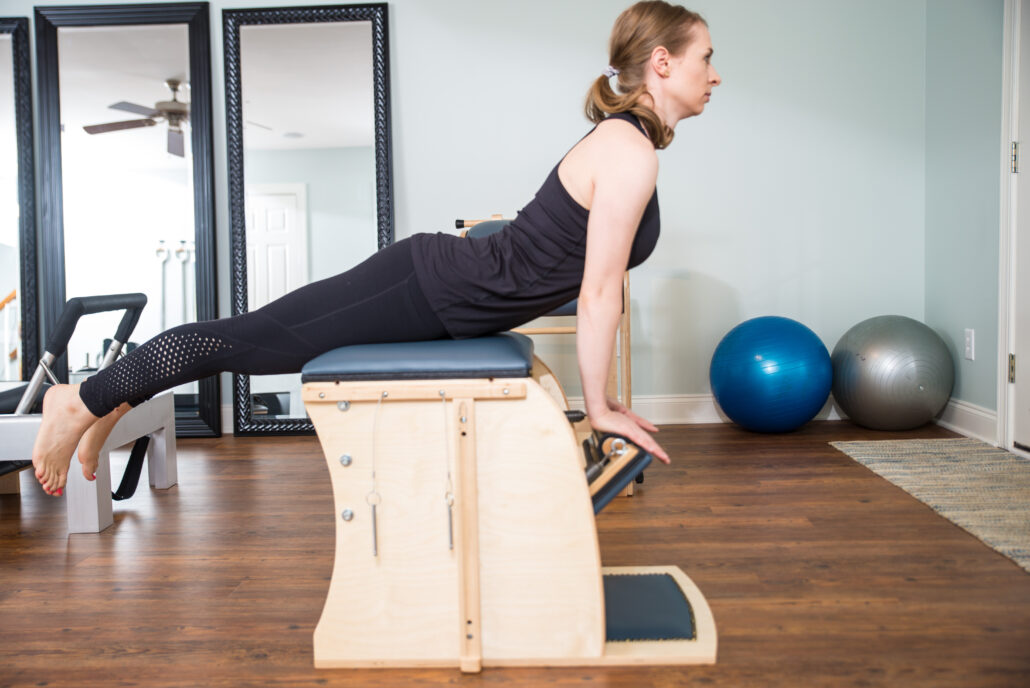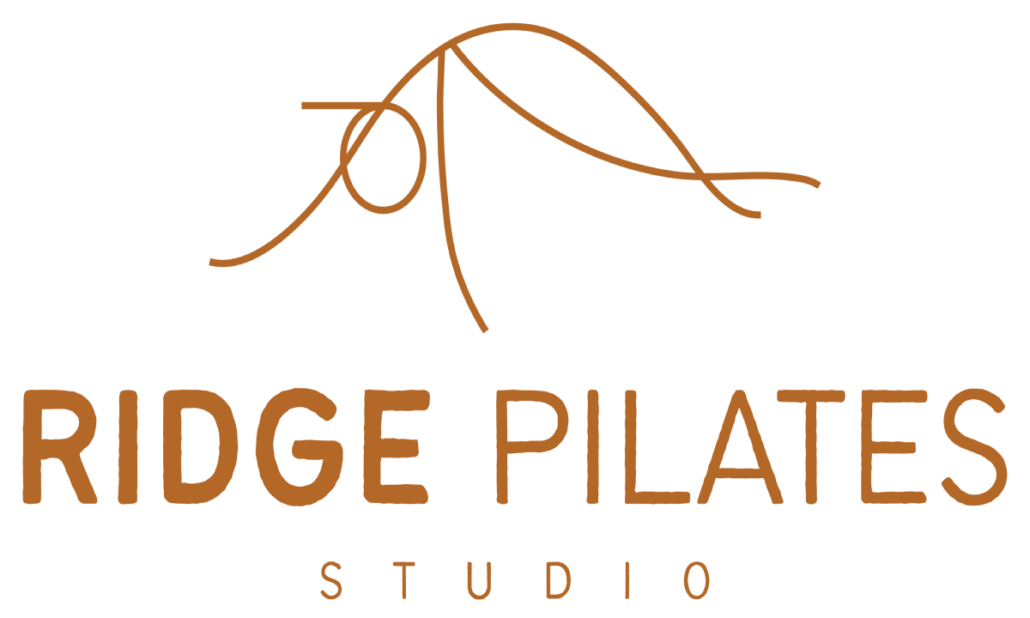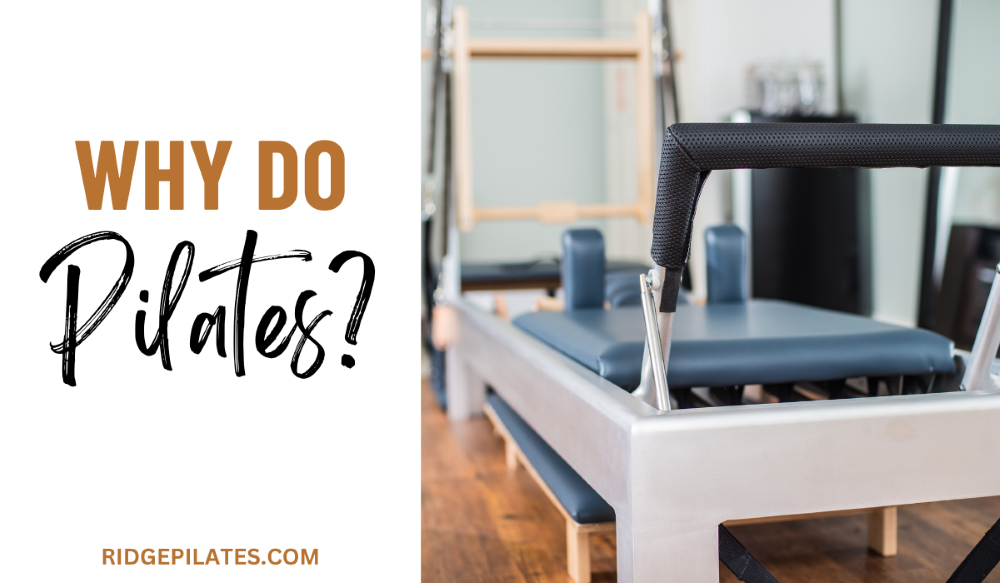If you ask any Pilates teacher this question, they will have a lot to say about it! But the short answer is that you should do Pilates because it will make you feel better and help you achieve your goals in life. For most people, Pilates is a means to an end. If you consistently show up to Pilates twice a week, you’ll start to reap the benefits outside of the studio very quickly. That pesky low-back pain will disappear. You’ll get up and down from the ground without your knees complaining. You’ll walk by a mirror and notice you’re standing a little taller and your shoulders aren’t up by your ears.
I love to ice skate (an old childhood hobby), to garden, and to ride bikes with my kids. My regular Pilates practice keeps me strong and healthy enough to do all of these things. What do you love to do?

Would you love to be playing tennis every week but a nagging knee injury is keeping you from the court? Do you want to spend your weekends gardening but low-back pain is forcing you inside? Maybe your kids or grandkids are begging you to play with them, but you know if you get down on the ground, you’ll struggle to get back up. A consistent Pilates practice with a qualified instructor can fix all these problems and more. If you can commit two hours of your week to Pilates, you’ll get stronger, feel better, and be back to doing what you love. Guaranteed.
Feeling convinced? Great! Let’s dive into the specifics of what you can expect from twice weekly Pilates sessions.
- Core Strength – One of the primary focuses of Pilates is building core strength. The core muscles, including the abdominal muscles, lower back, and pelvic floor, play a crucial role in maintaining stability and balance. Pilates exercises target these muscles, helping to develop a strong and stable core. This not only enhances posture and alignment but also improves overall body strength and power.
- Flexibility & Increased Range of Motion – Pilates promotes flexibility and enhances the body’s range of motion. The exercises involve dynamic stretching, which helps lengthen and elongate muscles. Increased flexibility reduces the risk of injuries and muscle imbalances. It also improves performance in other physical activities and promotes better body alignment.
- Improved Body Awareness – Pilates emphasizes body awareness, teaching you to connect with your body and move with precision and control. Through focused movements and concentration, you’ll become more attuned to your body and gain a better understanding of your strengths, weaknesses, and movement patterns. This heightened body awareness will carry over into your everyday activities and lead to improved posture and coordination.
- Better Posture – Poor posture is a common problem in today’s sedentary lifestyle. Pilates targets the muscles responsible for good posture, such as the deep abdominal muscles and the muscles along the spine. Regular Pilates practice helps strengthen these muscles, leading to improved posture and alignment. Correcting postural imbalances can alleviate pain, reduce the risk of injuries, and enhance overall body mechanics.
- Injury Prevention & Rehabilitation – Pilates is widely recognized for its rehabilitative benefits. The controlled movements and low-impact nature of Pilates make it an excellent option for individuals recovering from injuries or dealing with chronic pain. It helps improve muscular imbalances, restores proper movement patterns, and enhances stability. Many physical therapists incorporate Pilates into their rehabilitation programs to aid in injury recovery and prevent future injuries.
- Stress Relief – In addition to its physical benefits, Pilates offers significant mental and emotional benefits. The mind-body connection inherent in Pilates practice encourages mindfulness and relaxation. The focused breathing techniques and rhythmic movements promote stress reduction and release tension. Regular Pilates practice can contribute to an improved sense of well-being and a more balanced lifestyle.
- More Energy & Endurance – Pilates exercises are designed to engage the entire body, increasing energy levels and endurance. As the core muscles strengthen, they provide a solid foundation for all movement, making daily activities feel less tiring. With regular practice, you can expect to experience increased stamina and improved performance in your other physical activities.
- Versatility & Accessibility – Pilates is a versatile exercise method that can be adapted to suit different fitness levels and goals. Your Pilates practice can help you while you are training for a marathon and also when you are rehabbing an injury or recovering from childbirth. It’s adaptable and inclusive. Pilates is for every body!
What are your goals? Contact the studio today to discuss how Pilates can help you reach them. I’m here to help!

